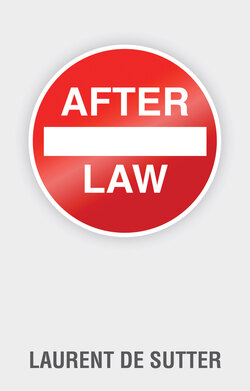Читать книгу After Law - Laurent de Sutter - Страница 6
Translator’s Note
ОглавлениеThe English translation of Après la loi – After Law – presents a particular problem, apparent in the final word of the title and traversing the entire text until the last sentence of the Postlude. Put simply, the English language collapses two concepts that are separated in the French terms ‘loi’ and ‘droit’ into the single all-embracing ‘law’. In some ways, this is a striking confirmation of one of the central theses of the work: that over the course of Western history, the law, ‘la loi’, with everything it entails in terms of abstraction and normativity, has come to dominate and determine the concrete and casuistic ‘droit’. The obvious solution, and the one used throughout this work is to translate ‘loi’ with ‘law’ and ‘droit’ with ‘right’. This procedure is not, however, perfect, and carries certain risks. The most significant of these is that ‘right’ in English has come to be associated almost exclusively with the ‘rights’ of the ‘subject’, which is to say the individual rights the subject embodies within a political construct. ‘Right’, as it is predominantly used in this work, is better understood in its opposition to ‘Law’: a disruptive activity of becoming that challenges, perhaps deconstructs, the being of Law. All this becomes most explicit in the ‘Postlude’, which returns to all the oppositions in play throughout the work as it passes through a global series of legal traditions. Throughout the English text, as it builds to this finale, I have, therefore, capitalized ‘Law’ and ‘Right’ when they are clearly to be understood in the tension of this opposition. This is intended to serve as a visual reminder that neither ‘Law’ nor ‘Right’ quite map onto the common meanings the terms carry in English, and it will be to some degree the responsibility and the experience of the reader to come to an understanding of how they operate across this text.
